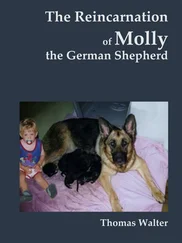Thomas Troward - The Creative Process in the Individual
Здесь есть возможность читать онлайн «Thomas Troward - The Creative Process in the Individual» — ознакомительный отрывок электронной книги совершенно бесплатно, а после прочтения отрывка купить полную версию. В некоторых случаях можно слушать аудио, скачать через торрент в формате fb2 и присутствует краткое содержание. Жанр: unrecognised, на немецком языке. Описание произведения, (предисловие) а так же отзывы посетителей доступны на портале библиотеки ЛибКат.
- Название:The Creative Process in the Individual
- Автор:
- Жанр:
- Год:неизвестен
- ISBN:нет данных
- Рейтинг книги:3 / 5. Голосов: 1
-
Избранное:Добавить в избранное
- Отзывы:
-
Ваша оценка:
- 60
- 1
- 2
- 3
- 4
- 5
The Creative Process in the Individual: краткое содержание, описание и аннотация
Предлагаем к чтению аннотацию, описание, краткое содержание или предисловие (зависит от того, что написал сам автор книги «The Creative Process in the Individual»). Если вы не нашли необходимую информацию о книге — напишите в комментариях, мы постараемся отыскать её.
THE SELF-CONTEMPLATION OF SPIRIT
THE DIVINE IDEAL
THE MANIFESTATION OF THE LIFE PRINCIPLE
THE PERSONAL FACTOR
THE STANDARD OF PERSONALITY
RACE THOUGHT AND NEW THOUGHT
THE DÉNOUEMENT OF THE CREATIVE PROCESS
CONCLUSION
THE DIVINE OFFERING
OURSELVES IN THE DIVINE OFFERING
The Creative Process in the Individual — читать онлайн ознакомительный отрывок
Ниже представлен текст книги, разбитый по страницам. Система сохранения места последней прочитанной страницы, позволяет с удобством читать онлайн бесплатно книгу «The Creative Process in the Individual», без необходимости каждый раз заново искать на чём Вы остановились. Поставьте закладку, и сможете в любой момент перейти на страницу, на которой закончили чтение.
Интервал:
Закладка:
supplies Selection and Motion. Substance supplies something from which
selection can be made and to which Motion can be imparted; so that it is a
_sine qua non_ for the Expression of Spirit.
Then comes the question, How did the Universal Substance get there? It
cannot have made itself, for its only quality is inertia, therefore it must
have come from some source having power to project it by some mode of
action not of a material nature. Now the only mode of action not of a
material nature is Thought, and therefore to Thought we must look for the
origin of Substance. This places us at a point antecedent to the existence
even of primary substance, and consequently the initial action must be that
of the Originating Mind upon Itself, in other words, Self-contemplation.
At this primordial stage neither Time nor Space can be recognized, for both
imply measurement of successive intervals, and in the primary movement of
Mind upon itself the only consciousness must be that of Present Absolute
Being, because no external points exist from which to measure extension
either in time or space. Hence we must eliminate the ideas of time and
space from our conception of Spirit's _initial_ Self-contemplation.
This being so, Spirit's primary contemplation of itself as simply Being
necessarily makes its presence universal and eternal, and consequently,
paradoxical as it may seem, its independence of Time and Space makes it
present throughout all Time and Space. It is the old esoteric maxim that
the point expands to infinitude and that infinitude is concentrated in the
point. We start, then, with Spirit contemplating itself simply as Being.
But to realize your being you must have consciousness, and consciousness
can only come by the recognition of your relation to something else. The
something else may be an external fact or a mental image; but even in the
latter case to conceive the image at all you must mentally stand back from
it and look at it--something like the man who was run in by the police at
Gravesend for walking behind himself to see how his new coat fitted. It
stands thus: if you are not conscious of something you are conscious of
nothing, and if you are conscious of nothing, then you are unconscious, so
that to be conscious at all you must have something to be conscious of.
This may seem like an extract from "Paddy's Philosophy," but it makes it
clear that consciousness can only be attained by the recognition of
something which is not the recognizing _ego_ itself--in other words
consciousness is the realization of some particular sort of _relation_
between the cognizing subject and the cognized object; but I want to get
away from academical terms into the speech of human beings, so let us take
the illustration of a broom and its handle--the two together make a broom;
that is one sort of relation; but take the same stick and put a rake-iron
at the end of it and you have an altogether different implement. The stick
remains the same, but the difference of what is put at the end of it makes
the whole thing a broom or a rake. Now the thinking and feeling power is
the stick, and the conception which it forms is the thing at the end of the
stick, so that the quality of its consciousness will be determined by the
ideas which it projects; but to be conscious at all it must project ideas
of some sort.
Now of one thing we may be quite sure, that the Spirit of Life must _feel
alive_. Then to feel alive it must be conscious, and to be conscious it
must have something to be conscious of; therefore the contemplation of
itself as standing related to something which is not its own originating
self _in propria persona_ is a necessity of the case; and consequently the
Self-contemplation of Spirit can only proceed by its viewing itself as
related to something standing out from itself, just as we must stand at a
proper distance to see a picture--in fact the very word "existence" means
"standing out." Thus things are called into existence or "outstandingness"
by a power which itself does not stand out, and whose presence is therefore
indicated by the word "subsistence."
The next thing is that since in the beginning there is nothing except
Spirit, its primary feeling of aliveness must be that of being alive _all
over_; and to establish such a consciousness of its own universal
livingness there must be the recognition of a corresponding _relation_
equally extensive in character; and the only possible correspondence to
fulfil this condition is therefore that of a universally distributed and
plastic medium whose particles are all in perfect equilibrium, which is
exactly the description of the Primary Substance or ether. We are thus
philosophically led to the conclusion that Universal Substance must be
projected by Universal Spirit as a necessary consequence of Spirit's own
inherent feeling of Aliveness; and in this way we find that the great
Primary Polarity of Being becomes established.
From this point onward we shall find the principle of Polarity in universal
activity. It is that relation between opposites without which no external
Motion would be possible, because there would be nowhere to move from, and
nowhere to move to; and without which external Form would be impossible
because there would be nothing to limit the diffusion of substance and
bring it into shape. Polarity, or the interaction of Active and Passive, is
therefore the basis of all _Evolution_.
This is a great fundamental truth when we get it in its right order; but
all through the ages it has been a prolific source of error by getting it
in its wrong order. And the wrong order consists in making Polarity the
originating point of the Creative Process. What this misconception leads to
we shall see later on; but since it is very widely accepted under various
guises even at the present day it is well to be on our guard against it.
Therefore I wish the student to see clearly that there is something which
comes before that Polarity which gives rise to Evolution, and that this
something is the original movement of Spirit _within itself_, of which we
can best get an idea by calling it Self-contemplation.
Now this may seem an extremely abstract conception and one with which we
have no practical concern. I fancy I can hear the reader saying "The Lord
only knows how the world started, and it is His business and not mine,"
which would be perfectly true if this originating faculty were confined to
the Cosmic Mind. But it is not, and the same action takes place in our own
minds also, only with the difference that it is ultimately subject to that
principle of Cosmic Unity of which I have already spoken. But, subject to
that unifying principle, this same power of origination is in ourselves
also, and our personal advance in evolution depends on our right use of it;
and our use of it depends on our recognition that we ourselves give rise to
the particular polarities which express themselves in our whole world of
consciousness, whether within or without. For these reasons it is very
important to realize that Evolution is not the same as Creation. It is the
unfolding of potentialities involved in things already created, but not the
calling into existence of what does not yet exist--_that_ is Creation.
The order, therefore, which I wish the student to observe is, first the
Self-contemplation of Spirit producing Polarity, and next Polarity
Читать дальшеИнтервал:
Закладка:
Похожие книги на «The Creative Process in the Individual»
Представляем Вашему вниманию похожие книги на «The Creative Process in the Individual» списком для выбора. Мы отобрали схожую по названию и смыслу литературу в надежде предоставить читателям больше вариантов отыскать новые, интересные, ещё непрочитанные произведения.
Обсуждение, отзывы о книге «The Creative Process in the Individual» и просто собственные мнения читателей. Оставьте ваши комментарии, напишите, что Вы думаете о произведении, его смысле или главных героях. Укажите что конкретно понравилось, а что нет, и почему Вы так считаете.












